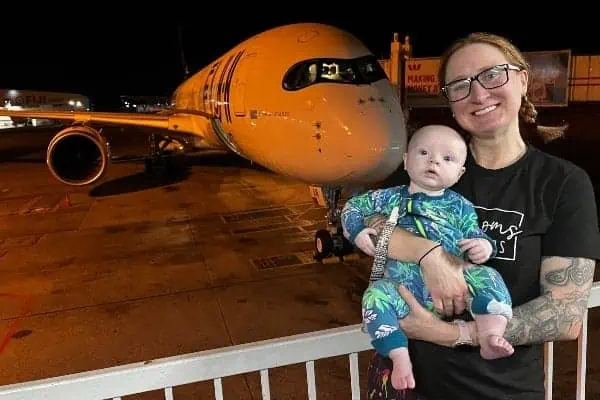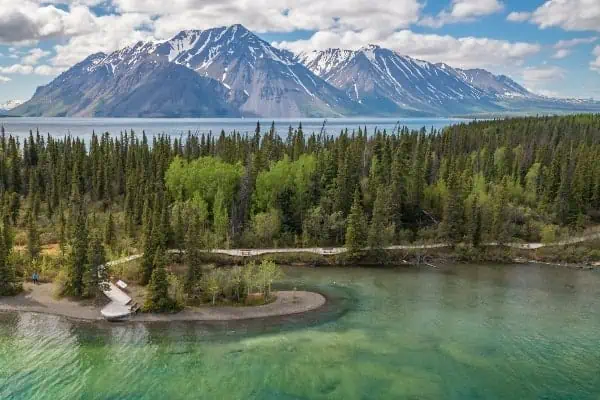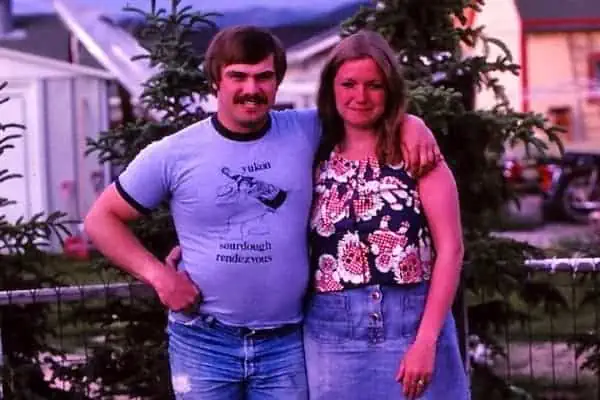At the age of 82, Peter Steele says he has very little memory of his own parents. That’s partly why he decided a few years ago to write his autobiography.
“I didn’t want my own kids to able to say the same,” he explains. “I thought I had enough interesting stories that I’d like them to know.”
Steele’s life story (so far) is now available in two self-published volumes. The first, Over the Hills, was joined earlier this spring by And Far Away.
The 17th-century folk tune reflected in the dual title is particularly apt, given the retired Whitehorse physician’s lifelong obsession with climbing mountains and travelling to far-flung destinations.
Steele was born in pre-war England, the son a well-respected surgeon. Despite a five-year evacuation in Wales during World War II, away from their parents, he and his older brother seemed destined for the relative comfort of upper-middle class life.
Their idyllic childhood crashed suddenly when Steele was 11. Within a six-month span, both parents committed suicide. The trustees of their estate decided the boys should be raised by a maternal aunt and uncle with whom they were far from compatible.
To make things even worse, the mores of their time and class meant they were not allowed to show their grief, or even speak about what had happened.
“That was a chilling experience. Stiff upper lip; you’ve got to put all this away. And I never really grieved my parents until quite late on, with pretty devastating results, when I got to Cambridge.”
In a recent interview, Steele admitted that was the hardest part of his autobiography to write.
“I just remember it so vividly. Every word that was written about it was how I felt at the time. I didn’t have to search, or try to find it. I remember one line saying, ‘Grief ungrieved will never go away.’ And I think it’s true, even in later years.”
The first volume traces Steele’s life from boyhood through his studies at Cambridge University and various hospital posting en route to becoming a full-fledged doctor, up to his marriage in 1961 to a beautiful and adventurous nurse named Sarah Fleming.
That narrative arc, however, comprises just a partial portrait of the first third of his life. At times, in fact, the pursuit of medicine seems almost secondary to his increasing passion for climbing.
Steele caught the climbing bug even before university, during a stint at the Eskdale Outward Bound School in England’s Lake District. The school’s warden was the renowned British climber, Eric Shipton
Shipton would become a lifelong mentor and friend, and subject of Steele’s 1998 book, Eric Shipton: Everest and Beyond.
Later, as a member of the Cambridge University Mountaineering Club, Steele took on increasingly challenging ascents in various corners of Europe and Asia.
“Once I got in with the mountaineers and had a really strong purpose, things improved in me hugely. I made some wonderful and very close friends. It became the pivotal point of my life,” he says.
Steele writes with elegant lucidity and an amazing recall of specifics, but doesn’t shy away from the odd sly, even ribald, anecdote. One of these concerns the culmination of his lengthy courtship with Sarah Fleming.
Steele hits his most vigorous stride as a writer in the second volume, And Far Away, particularly in his detailed descriptions of four particular adventures.
The first three chapters describe a lengthy trip he and Sarah took by van (and other conveyances) from England to Nepal in the first year of their marriage.
In Chapter Four, a poetic pulse underlies the telling of a challenging dog-sled journey down the Labrador coast from Nain to Hopewell, during a year Steele spent running a small Grenfell Mission hospital in a former French trading post in central Labrador.
The next big adventure for the Steele family – which by then included two very young children – was to cross the width of Bhutan, a mysterious kingdom surrounded on all sides by the Himalayan mountains, reputed to be the happiest country in the world.
The full story of that journey is told in Steele’s 1970 book, Two and Two Halves to Bhutan, but even the condensed version presented here contains enough harrowing – and enticing – detail to leave the reader occasionally gasping for breath.
Steele calls his experience with Norman Dyhrenfurth’s International Everest Expedition in 1971 the “zenith” of his climbing career.
From the excitement of being invited as one of two doctors on the expedition, through the months of preparation, to the actual assault, Steele tells an unblinking tale of how the whole thing unravelled in chaos following the death of Indian climber Harsh Bahuguna.
Steele chronicled this ill-fated attempt on the world’s highest mountain in his 1972 book, Doctor on Everest. The shorter re-telling here is a gripping account of how failure of leadership can have disastrous results.
Back home in England, Steele found himself “unsettled and difficult to live with,” on the cusp of deciding to give up surgery. The cure to his “grumpy” mood lay in a quick decision to tour South America with his 9-year-old son.
The story of their three-month odyssey provides a warm and charming penultimate chapter for his autobiography.
Northerners hoping to learn about Steele’s life as a family physician in the Yukon will have to wait a bit longer. The second volume ends in 1975, at the moment he and Sarah (now deceased), decided to make Canada’s top left corner their new home.
Over the Hills and its companion, And Far Away, are available at Mac’s Fireweed Books in Whitehorse, and through Amazon.ca in both paperback and Kindle formats.




